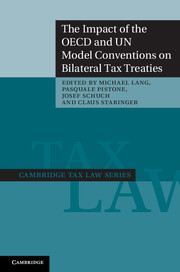Book contents
- Frontmatter
- Contents
- Contributors
- Preface
- Table of cases
- Table of statutes
- General report
- 1 Argentina
- 2 Australia
- 3 Austria
- 4 Belgium
- 5 Brazil
- 6 Canada
- 7 Chile
- 8 China
- 9 Colombia
- 10 Croatia
- 11 The Czech Republic
- 12 Estonia
- 13 Finland
- 14 France
- 15 Germany
- 16 Hong Kong
- 17 Hungary
- 18 India
- 19 Italy
- 20 Lebanon
- 21 Liechtenstein
- 22 The Netherlands
- 23 New Zealand
- 24 Norway
- 25 Peru
- 26 Poland
- 27 Portugal
- 28 Romania
- 29 The Russian Federation
- 30 Serbia
- 31 Slovakia
- 32 Slovenia
- 33 Spain
- 34 Sweden
- 35 Uganda
- 36 The UK
- 37 The USA
- Index
- References
15 - Germany
Published online by Cambridge University Press: 05 November 2014
- Frontmatter
- Contents
- Contributors
- Preface
- Table of cases
- Table of statutes
- General report
- 1 Argentina
- 2 Australia
- 3 Austria
- 4 Belgium
- 5 Brazil
- 6 Canada
- 7 Chile
- 8 China
- 9 Colombia
- 10 Croatia
- 11 The Czech Republic
- 12 Estonia
- 13 Finland
- 14 France
- 15 Germany
- 16 Hong Kong
- 17 Hungary
- 18 India
- 19 Italy
- 20 Lebanon
- 21 Liechtenstein
- 22 The Netherlands
- 23 New Zealand
- 24 Norway
- 25 Peru
- 26 Poland
- 27 Portugal
- 28 Romania
- 29 The Russian Federation
- 30 Serbia
- 31 Slovakia
- 32 Slovenia
- 33 Spain
- 34 Sweden
- 35 Uganda
- 36 The UK
- 37 The USA
- Index
- References
Summary
The importance of the OECD and UN Model Conventions and their Commentaries for the interpretation of German tax treaties
The importance of the OECD Model Conventions
Germany's treaties to avoid double taxation with respect to taxes on income and on capital to a large extent replicate the model tax conventions that have been issued by the OECD since 1963 as far as their structure and their wording are concerned. However, the common base of the German tax treaties and the OECD Model Tax Convention on Income and on Capital (OECD Model) lies long before 1963. The gradual development of a modern global network of tax treaties can be traced to 1925, when Germany concluded an agreement with Italy. This treaty was inspired by scientific findings of the Committee on Fiscal Affairs of the League of Nations, which had significantly influenced the development of law in this field since the early 1920s. This expertise of the League of Nations formed the basis of the further development of international tax law in the 1940s which eventually led to the 1963 OECD Model. The close relationship today between German tax treaties and the activities of the OECD shows that they have a common base.
One of the first German treaties that was influenced by the OECD Model was the revised tax treaty with the UK concluded in 1964. Indeed, the first OECD Model of 1963 had not yet been published when the German–British treaty negotiations came to an end in 1960; however, the contracting parties took into account those parts of the forthcoming Model that had already been published. Subsequently, the German treaties that were concluded after the mid-1960s followed the 1963 OECD Model, although the treaties between Germany and developing countries included some elements of the United Nations Model Double Taxation Convention between Developed and Developing Countries (UN Model), which was issued in 1980. Some of these treaties, for example, allow for crediting notional taxes on capital income. Even today numerous treaties that follow the 1963 OECD Model are still in force. As the majority of German treaties were negotiated and renegotiated after the release of the 1977 OECD Model and subsequently the 1992 OECD Model, most of them are broadly in accordance with these models.
- Type
- Chapter
- Information
- Publisher: Cambridge University PressPrint publication year: 2012
References
- 1
- Cited by

